In a world where the fuel is becoming less and less popular, why are diesel engine cleaners important as a fuel additive? The unmistakable clatter of a diesel engine is becoming a rarer sound nowadays with newer cars. But in contrast to what manufacturers and governments are pushing towards nowadays, there are still masses of old diesels on the road.
Until they're frivolously outlawed in however many years that may or may not be, there will be a place on our roads for diesel cars. If you're travelling long distances on motorways, the fuel efficiency of a diesel engine is almost unbeatable to the point that no PHEV or petrol car can match. The outside lanes of the M1 and other busy roads are still awash with Mercedes E350Ds and Audi A4 TDIs. Diesel may not be as popular in new cars, but they are still important to everyday lives.
One of the drawbacks of diesel, however, is carbon deposits that naturally build up over time. These hard carbon deposits reduce performance and engine efficiency, so it's a good idea to get them removed. Thankfully there are a number of fuel additives available that'll flush these deposits out as you drive along. And in case you're wondering, petrol engine cleaners are on the market as well.
The best diesel engine cleaners 2025 at a glance
We've already covered diesel injector cleaners, but there are more additives designed for different purposes. Let us guide you through the best diesel engine cleaners on the market to clean out the pesky bits that usually go wrong with cars powered by the stuff.
The best diesel engine cleaners 2025
The best diesel engine cleaner
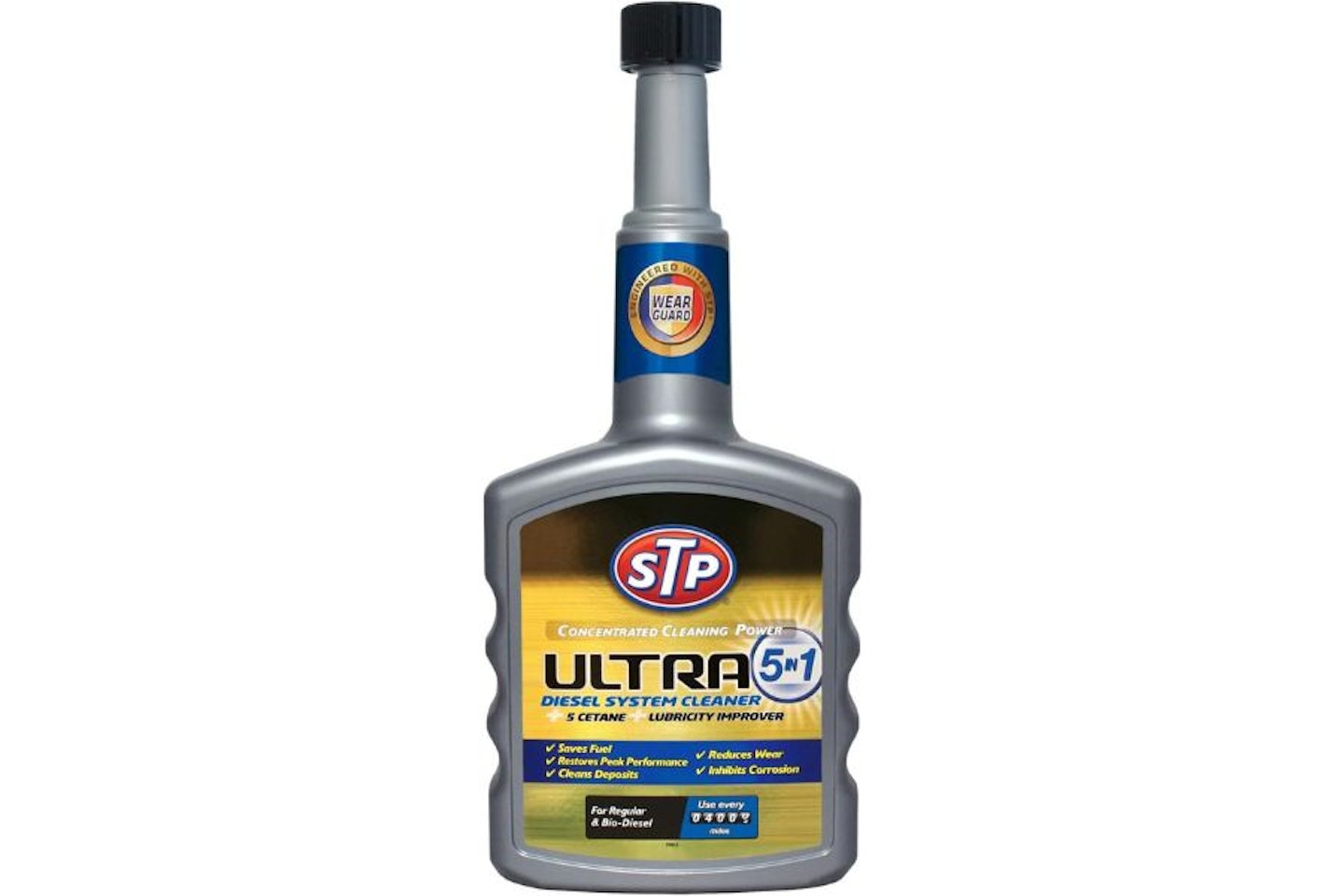 Via STP
Via STPIf you're looking for the most comprehensive engine cleaner that represents great value for money and cleans up as many parts of a diesel engine as possible, STP's 5-in-1 fuel system cleaner is hard to match. Not only does it dissolve carbon deposits, but but it's safe to use in all diesel engines and tackles things from the injectors to the fuel lines and EGR valves.
Being a diesel engine's equivalent of a juice-cleanse, the STP 5-in-1 cleaner will flush out deposits, restoring lost power and boosting overall fuel economy. It also works as a preventative measure against further deposits building up.
Pros
- Great for removing deposits throughout the engine from injectors to EGR valves
- Improves engine smoothness and subsequent emissions, due to cleanliness
- Represents great value for money
Cons
- Isn't quite as thorough as some others, i.e. Cataclean
Editor's pick
 Via Redex
Via RedexOne of the best value options out there is the Diesel System Cleaner by Redex. In 500ml of product you get four shots of diesel cleaner and it's an ideal product for regular engine maintenance, with the only expense being you inserting it with every time you fill up.
It helps remove carbon deposits that build up on your fuel injectors, and if they were badly clogged before, you'll restore a bit of performance and efficiency to your engine. Redex also produce a petrol system variant of this product too, which also massively helps with engine smoothness and cleanliness.
Pros
- Good value for the quantity you get (500ml for under £10)
- Can be used in every tank and can be a great tool for regular engine maintenance rather than a deep clean
- Suitable for all diesel vehicles, turbo, N/A, or hybrid assisted
Cons
- Isn't as thorough as the other products
Best diesel turbo cleaner
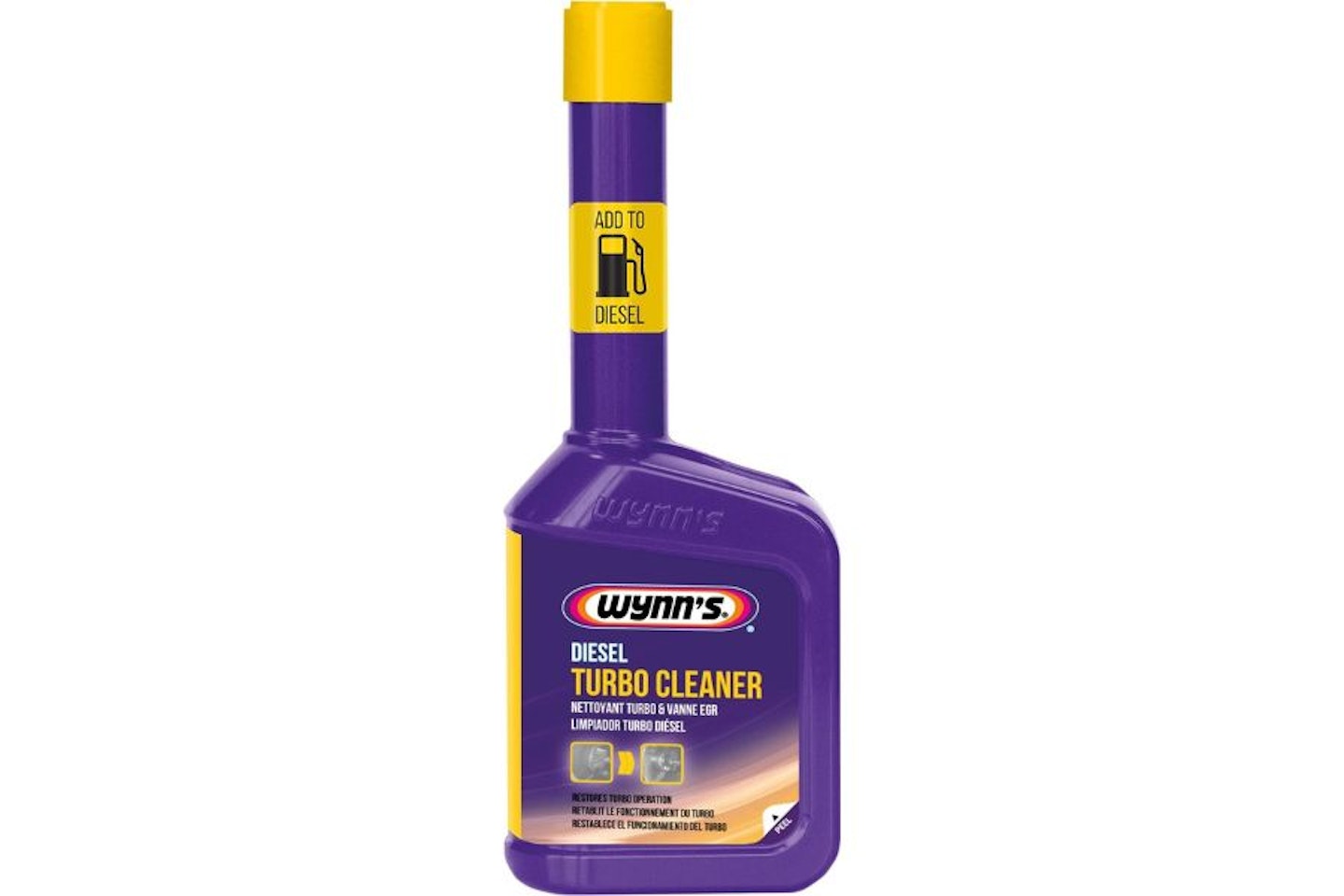 Via Wynn's
Via Wynn'sIf your turbocharged diesel engine is missing some boost, then it may be partially blocked from deposit build-ups due to high miles without cleaning. Turbos need to be running efficiently to get the most our of your engine's performance and efficiency, and this product by Wynn's is designed to do just that.
Wynn's Diesel Turbo Cleaner is designed to clear these turbochargers and restore lost performance to your engine. Obviously, make sure your car is a turbo diesel before purchasing as it won't be effective on N/A units.
Pros
- Helps restore performance in the turbocharger as well as helping out with the EGR valves
- Helps save turbochargers from expensive replacement costs
- Represents good value for money at just over £10 per bottle (325ml)
Cons
- Only works with turbo diesel engines rather than N/A units
Best DPF cleaner
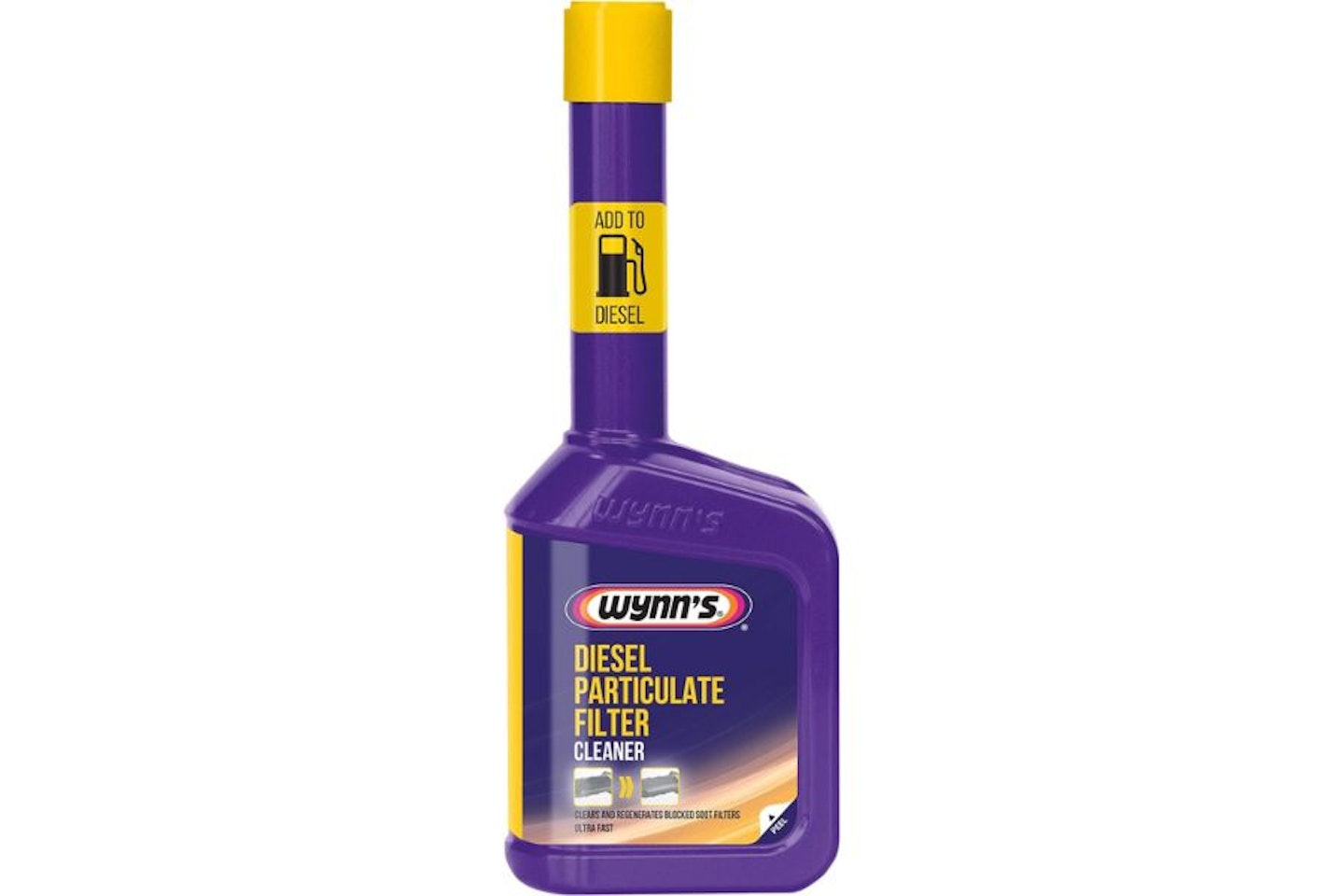 Via Wynn's
Via Wynn'sA diesel particulate filter (DPF) will reduce soot emissions and make a diesel engine cleaner. However, DPFs can get clogged with soot easily, reducing engine power and decreasing fuel efficiency.
This particulate cleaner from Wynn's will remove these soot emissions, making your engine run smoother and cleaner. It targets DPF filters as these can get commonly clogged up with soot and carbon build-ups. It's designed for regular diesel cars and also diesel hybrid vehicles. It's particularly beneficial to diesel vehicles that regularly do urban driving, which in most cases, is where soot is most likely to build up in the filters and other components.
Pros
- Reduces soot emissions caused by clogged diesel vehicles
- Avoid DPF maintenance costs by simply cleaning them up
- Very well-suited to diesel cars that do lots of urban driving
Cons
- Doesn't target other areas of the engine, unlike others
Best for high mileage vehicles
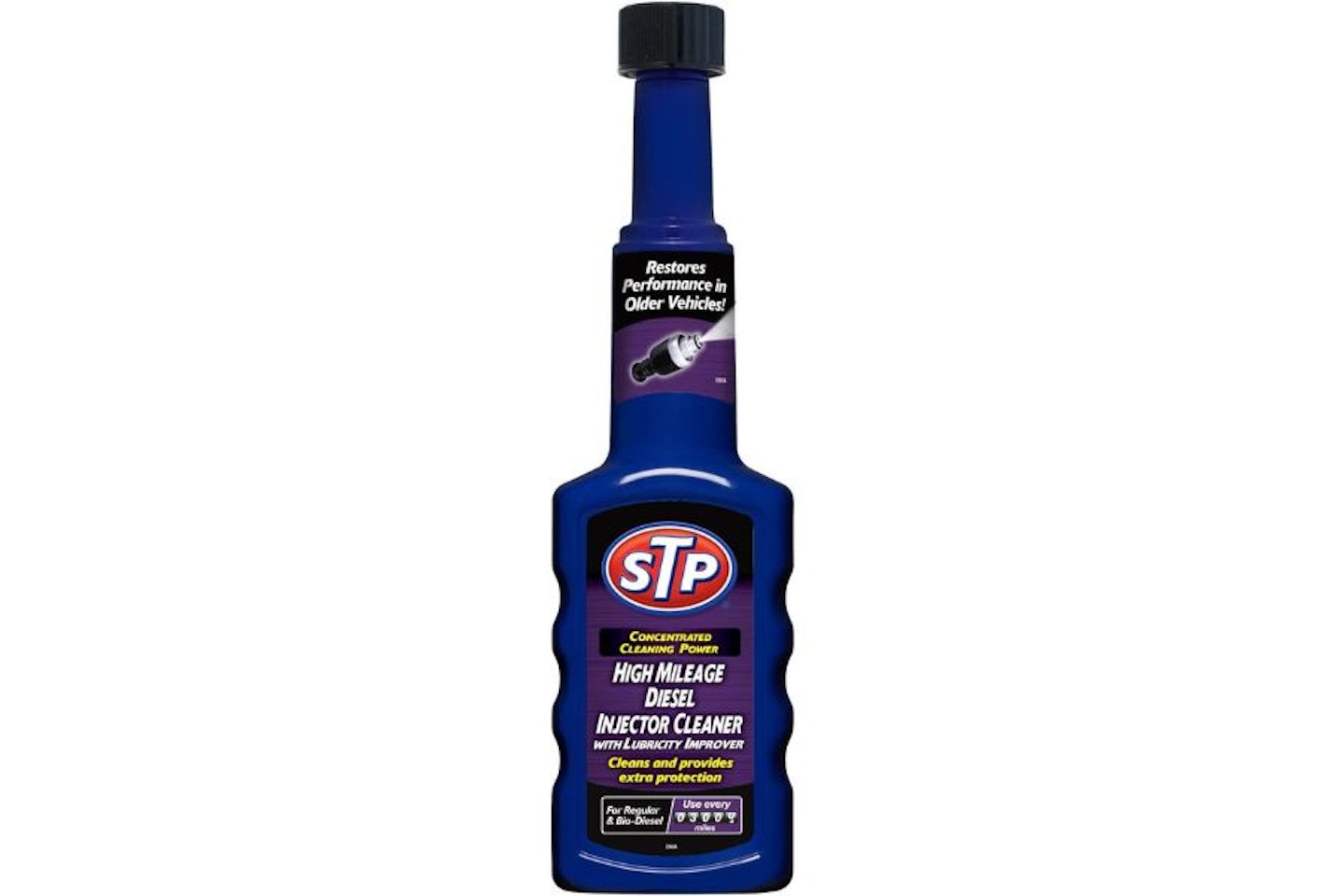 Via STP
Via STPAs cars get older, they inevitably start to run less efficiently due to carbon soot and build-up in various parts of the engine. The injectors can be one of them, and an engine can run quite roughly if they're not cleaned in a higher mileage engine.
This highly concentrated additive from STP is specially formulated for cars with higher miles on the clock to remove stubborn deposits and boost engine power. It will also help protect your engine too and give it the cleanliness it deserves.
Pros
- Perfect for cars with over 75,000 miles on the odometer and are regularly used
- Protects your engine's injectors by keeping them clean, helping efficiency and smoothness
- Represents very good value for money at under £7 for a 200ml bottle
Cons
- Newer/low-mileage cars will not show any difference
Best EGR cleaner
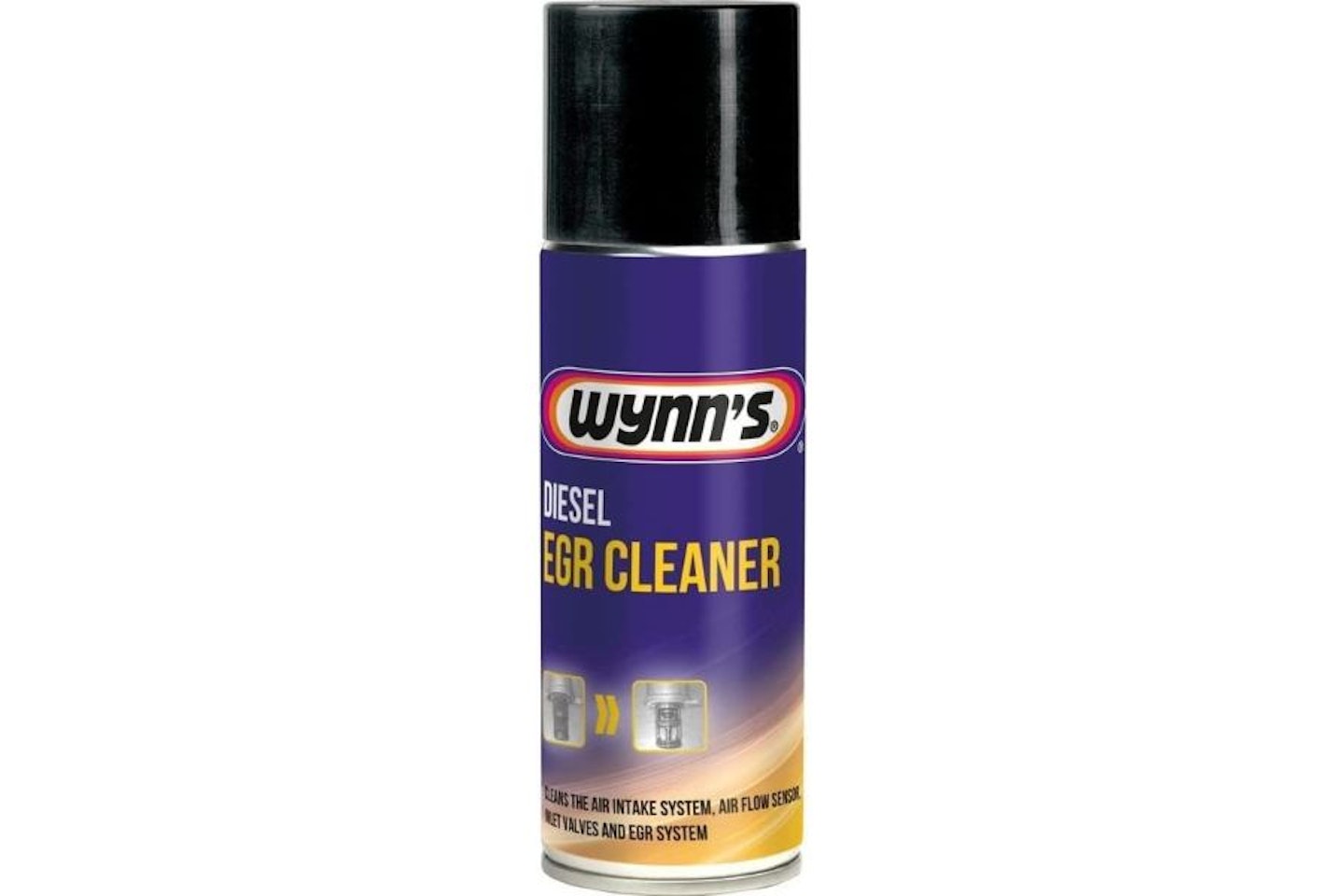 Via Wynn's
Via Wynn'sThe EGR (Exhaust Gas Recirculation) system reduces harmful Nitrogen Oxide emissions (N2O) and is important for modern diesel engines. The EGR valve is central to reducing these emissions but can become clogged by particulate build-up. This can lead to running issues which can be noticeable if affected.
This product from Wynn's is not a fuel additive but an aerosol that cleans the EGR valve, air intake system and inlet valves. It isn't as simple as inserting the product into the fuel tank, and you have to be prepared and very careful when spraying it towards the EGR valves.
Pros
- Reduces harmful emissions and engine smoothness caused by blocked EGR valves
- Helps avoid hefty EGR repair bills which garages will charge if they go wrong
- Represents very good value for money
Cons
- Is only designed for one task in mind, being the EGR valves
The most thorough diesel engine cleaner
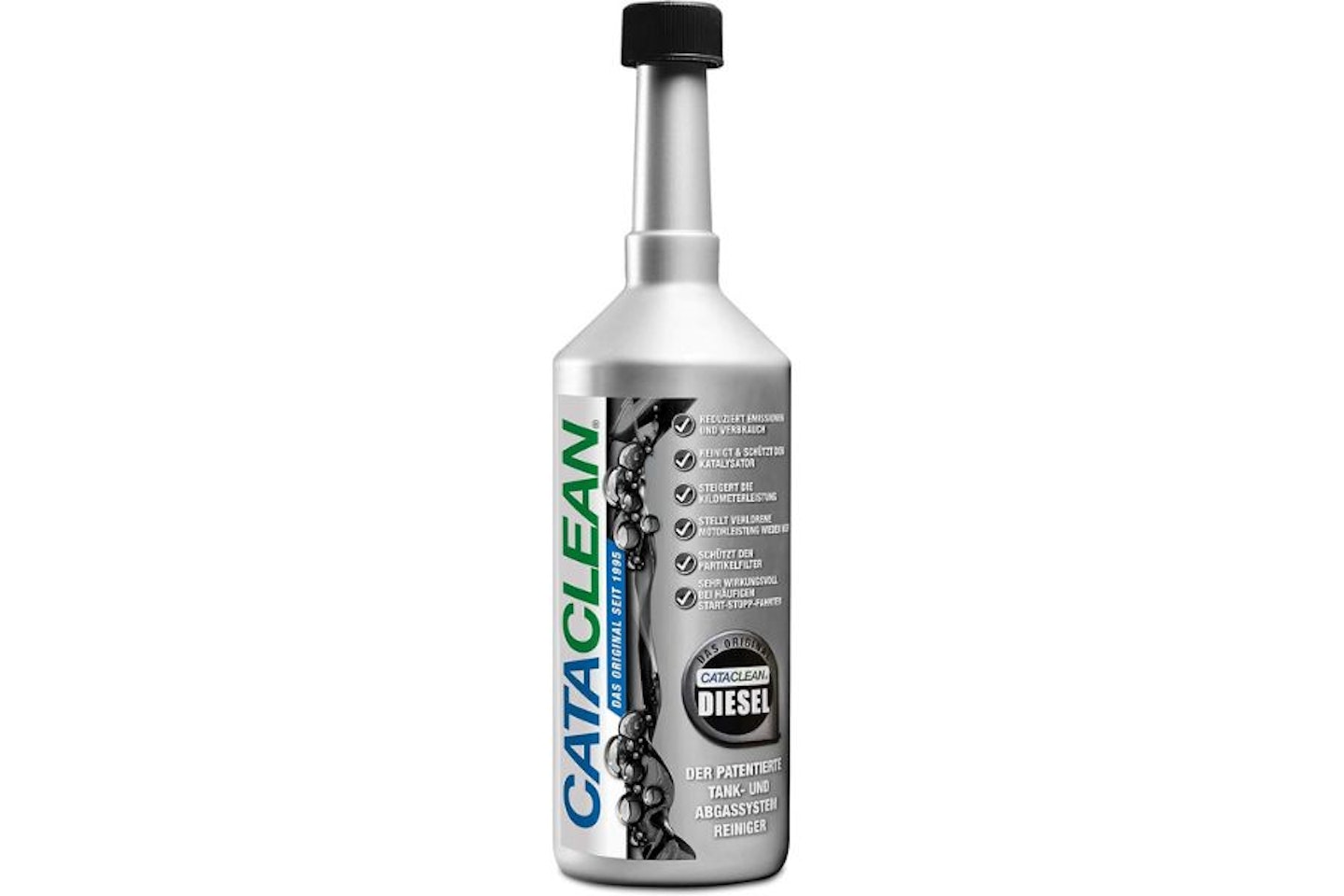 Via Cataclean
Via CatacleanPerfect for reducing emissions, Cataclean is designed to clean and protect your car's catalytic converter, DPF filters (diesel particulate filter), and so much more besides. This is the most comprehensive and thorough diesel engine cleaner on our list, and for really badly affected cars, it's worth having a go with it.
Not only is it capable of reducing overall diesel emissions, but will help restore performance and increase your overall fuel economy as well. The instructions are quite precise however. Cataclean recommends you add 500ml of the product for every 15-litres of diesel every three months. This makes it less straight forward to use than the others, but it promises some noticeable results.
Pros
- Cleans out a plethora of components from injectors to fuel lines and EGR valves
- Quite a lot stronger than the rest, which is useful for badly-affected diesels
- Value for money is pretty good, considering its capability and usage schedule
Cons
- Instructions are quite precise at 500ml per 15-litres of fuel every three months
Best catalytic converter cleaner for diesels
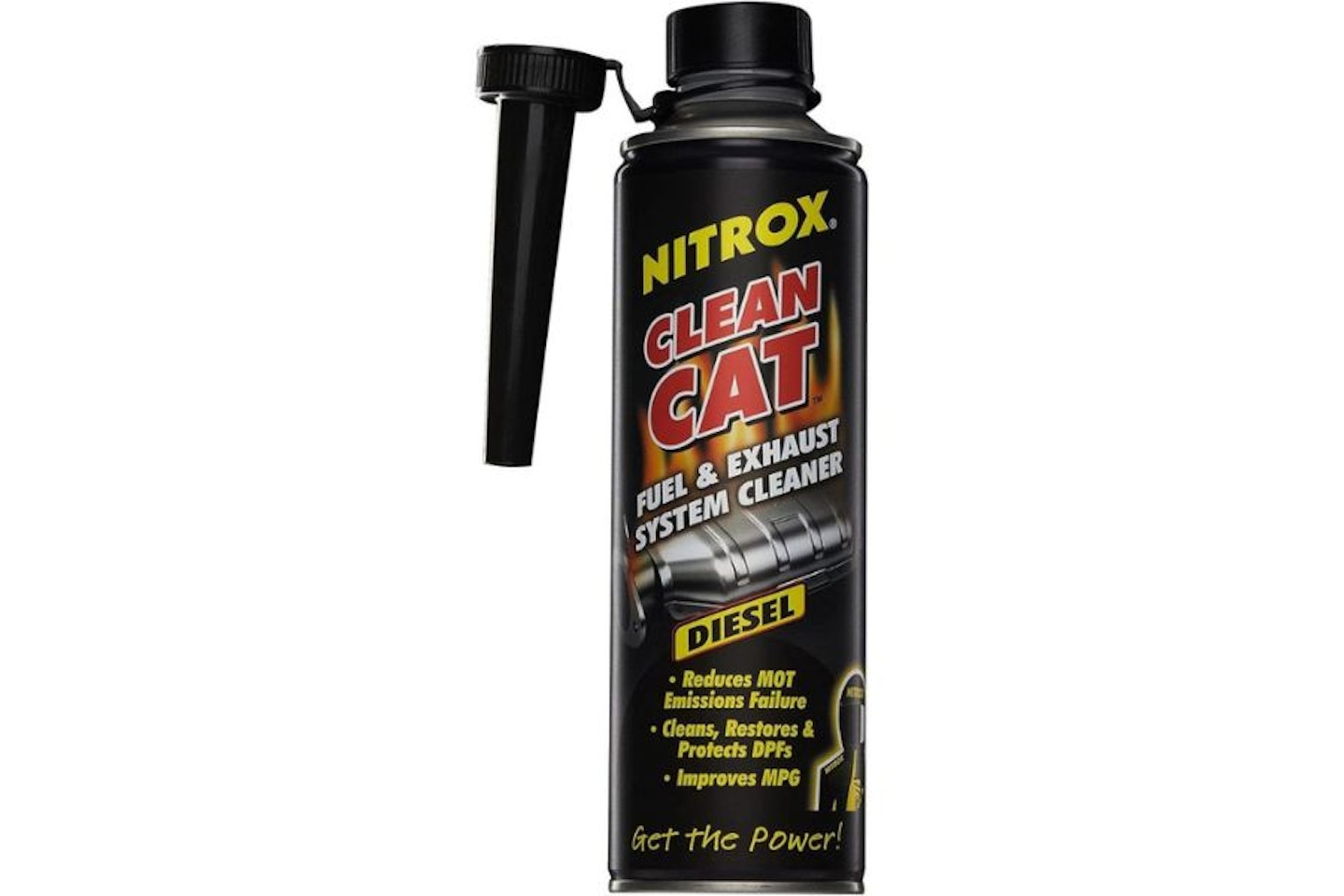 Via Nitrox
Via NitroxDesigned specifically with DPF filters and catalytic converters in mind, Nitrox's diesel cleaner is designed to be used every three months as part of your vehicle maintenance schedule and helps prevent carbon build-up and clogging, which leads to the failure of many components in a diesel engine.
You simply pour the product into the fuel tank and let it do its thing, just like most others. If your car is clogged with soot and carbon build-up, it can help clear them and subsequently improve your emissions readings.
Pros
- Helps to remove soot and carbon build-ups in diesel engine components
- Can help to improve exhaust emissions and running smoothness, if your vehicle is affected
- Easy to use, as you only have to pour it into your fuel tank
Cons
- Not quite as comprehensive as some other cleaners
Best value diesel engine cleaner for DPF filters
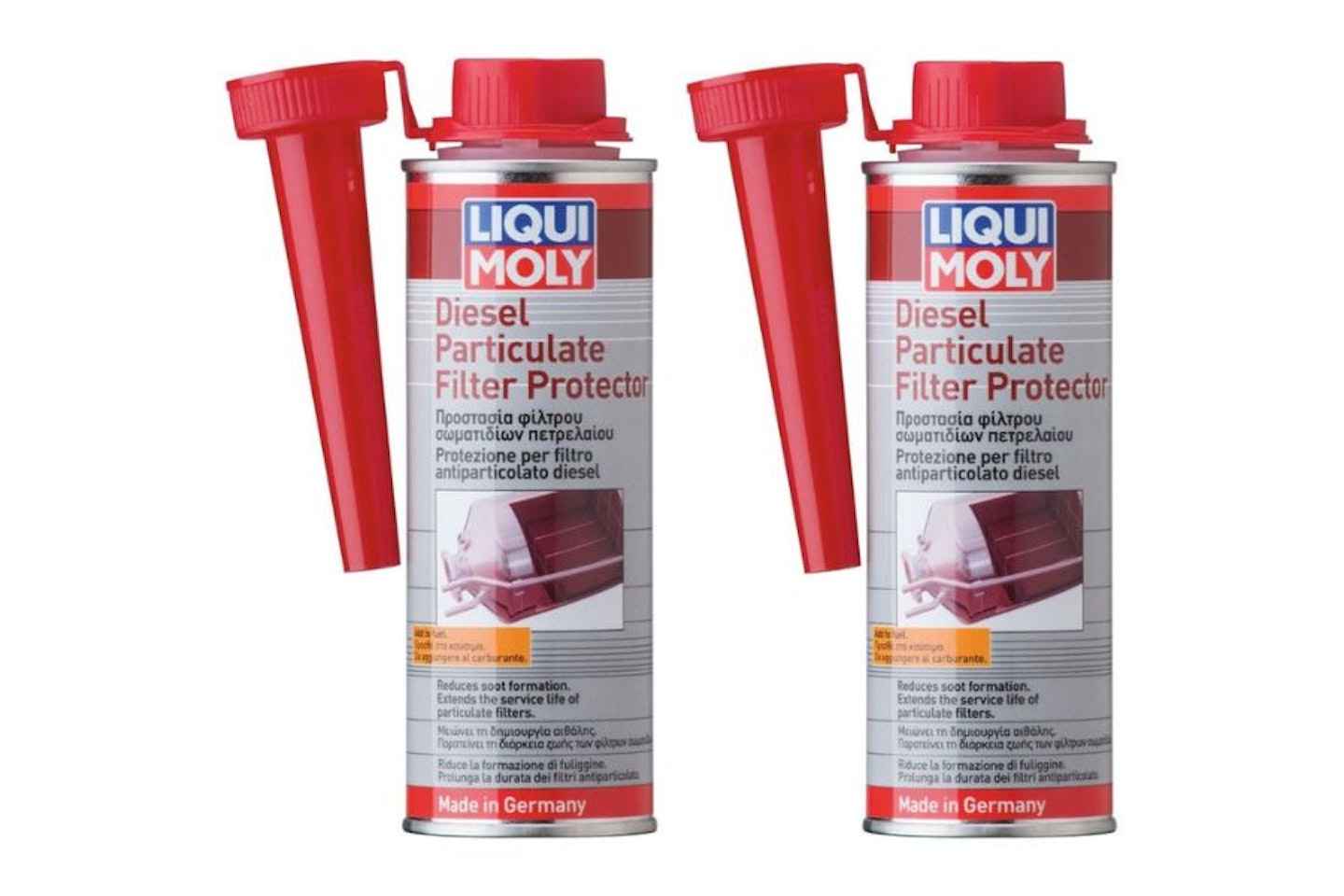 Via Liqui Moly
Via Liqui MolyDiesel particulate filters can get clogged up if they're not cleaned, and this can lead to running issues in later life of diesel engines. For two 250ml bottles, Liqui Moly's DPF cleaners are roughly the same price as one 5-in-1 engine cleaner.
It's designed to cater for cars which are used for short trips and within urban traffic, as these are more likely to build up soot than motorway-driven vehicles. To use, you simply insert it into the fuel tank every 2,000km (1,240 miles). One single can is sufficient for every 50 to 70-litres of diesel.
Pros
- It doesn't have to be used too regularly (every 1,240 miles)
- Helps clean out DPF filters in cars used in urban traffic and short trips
- Ideal for diesel vehicles which are not fitted with electronically-controlled additive tank systems (for filter regeneration)
Cons
- Not quite as comprehensive as other diesel engine cleaners
FAQs and what you need to know about diesel engine cleaners:
Is diesel engine cleaner worth it?
Diesel loves to create nasty carbon deposits over time which will make your engine less efficient. The tell-tale signs include black smoke and reluctance during starting. An engine full of deposits will also suffer from less performance and increased fuel usage. That's why these fuel cleaners are so useful and ultimately worth it on higher mileage vehicles, they help dissolve these deposits and help maintain its performance and efficiency.
How do I know what diesel engine cleaner to buy?
It can be quite hard to diagnose where the deposits are building up in your engine, so for most applications, a generalised cleaner will probably be better. You might even want to try adding an engine oil additive to help things along. If, however, you can pinpoint the issue, a specialised engine cleaner will have insanely good results. Here are the common warning signs:
If you're running a turbo diesel engine and can feel a noticeable loss of power, there's a good chance the turbo could use a cleanout. If you're struggling on start-up and black smoke from the exhaust points to an injector problem, invest in some injector cleaners to prevent these issues. Got an MOT coming up? If you're worried about emissions, then a catalytic converter cleaner could make the difference between a pass and a fail.
What's the difference between diesel engine cleaner and injector cleaner?
Simply put, injectors are one of the most important parts of an engine. Their role is to inject fuel into the combustion chambers, and if they're clogged up slightly, a noticeable difference in running smoothness is evident. An engine's idle can bounce around a bit, and this can be caused by blocked and/or damaged injectors.
Diesel injector cleaner is designed to tackle exactly this, and the fluids are formulated to break down and flush the soot built-up within those delicate and tiny components. Diesel engine cleaners on the other hand are formulated slightly differently and aren't so focused on one component or another, rather a mix of different formulas to tackle a range of engine parts. Cataclean's engine cleaner is a good example, whereby it can tackle more than a few aspects of a slightly unhealthy diesel engine. STP's injector cleaner however, is designed for just one or two purposes in mind.
How often should I use diesel engine cleaner?
This depends on what the manufacturer labels tell you. There isn't a set schedule across the board as all products are different and require different types of usage. STP will recommend using some of its products every 400-miles whereas Redex will recommend you use its diesel system cleaner with every tank. Liqui Moly recommends its DPF cleaner is used every 1,240 miles, so it's worth checking the labels and deciding on which cleaner is best for your needs and your vehicle.
Ryan Gilmore is the Deputy Autos and Tools Editor for CAR, specialising in car cleaning and hand tools. With an MA in Automotive Journalism, when he's not testing buckets he can be found looking at old Porsches.
